Brexit latest: what are the ‘serious divergences’ between EU and UK?
Welcome to The Week’s rolling coverage of the next step in EU trade negotiations
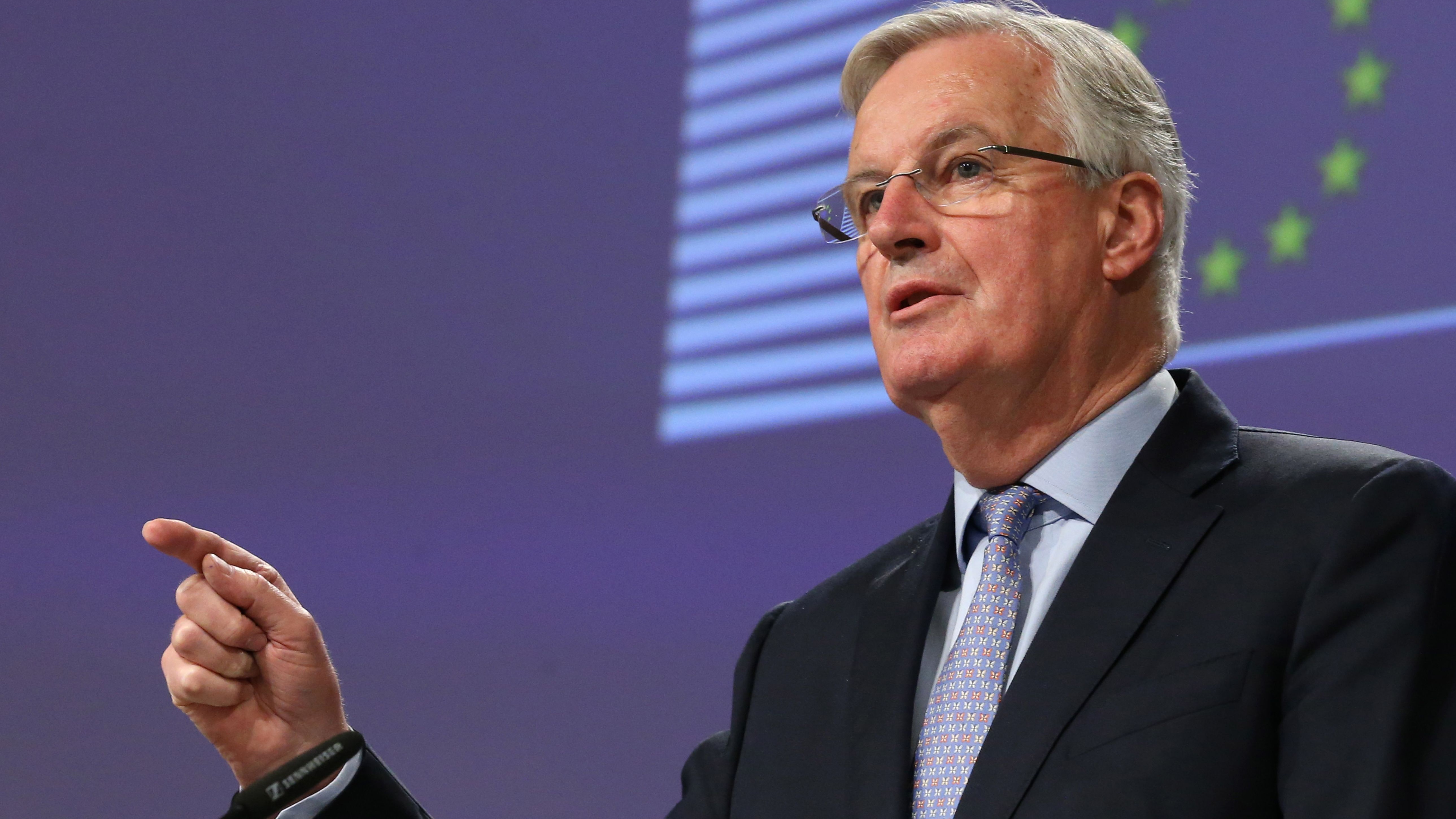
A free daily email with the biggest news stories of the day – and the best features from TheWeek.com
You are now subscribed
Your newsletter sign-up was successful
The UK celebrated - and commiserated - Brexit Day on 31 January, when the country finally left the European Union. However, Brexit is not officially “done”. A new chapter has begun, during which London and Brussels will try to close a trade agreement over a transition period of 11 months. Here is the latest on the negotiations.
_______________________________________________________________________
The EU’s chief Brexit negotiator has warned of “serious divergences” with the UK over the contents of a future trade deal.
The Week
Escape your echo chamber. Get the facts behind the news, plus analysis from multiple perspectives.

Sign up for The Week's Free Newsletters
From our morning news briefing to a weekly Good News Newsletter, get the best of The Week delivered directly to your inbox.
From our morning news briefing to a weekly Good News Newsletter, get the best of The Week delivered directly to your inbox.
Addressing a press conference in Brussels following the first round of negotiations, Michel Barnier said the main issues to be resolved were cooperation in criminal justice matters, control of UK fishing waters and the way that any deal would be structured.
Discussions over the “level playing field” policy, which guarantees fair competition between EU and British companies after Brexit, was also a sticking point, he added.
Barnier said that Downing Street’s negotiators were seeking a series of separate deals, while the bloc favoured one overarching agreement that would give the European Court of Justice a final say on the interpretation of EU laws in the UK, The New York Times reports.
The UK has also refused to sign up to the European Convention on Human Rights, he confirmed, as the two sides mark the end of the first week of trade negotiations.
A free daily email with the biggest news stories of the day – and the best features from TheWeek.com
But Barnier stressed that a deal was still on the table. “There are many serious divergences,” he said. “An agreement is possible, even if difficult.”
Talks were cordial and held in “a constructive spirit” in a “demanding context”, the EU’s Brexit boss insisted.
A Downing Street spokesperson also described the talks as “constructive”.
The UK’s lead Brexit negotiator, David Frost, reportedly assured Barnier that Britain will stick to the terms of the withdrawal agreement, particularly measures to avoid a hard border on the island of Ireland.
EU officials had “been rattled by signs that Boris Johnson’s government is backsliding on the commitments it made” in the treaty, signed in January, according to New York-based news site Bloomberg.
The talks are set to continue despite the coronavirus outbreak in Europe, the prime minister’s spokesperson confirmed today.
_______________________________________________________________________
Will Boris Johnson walk out of EU talks?
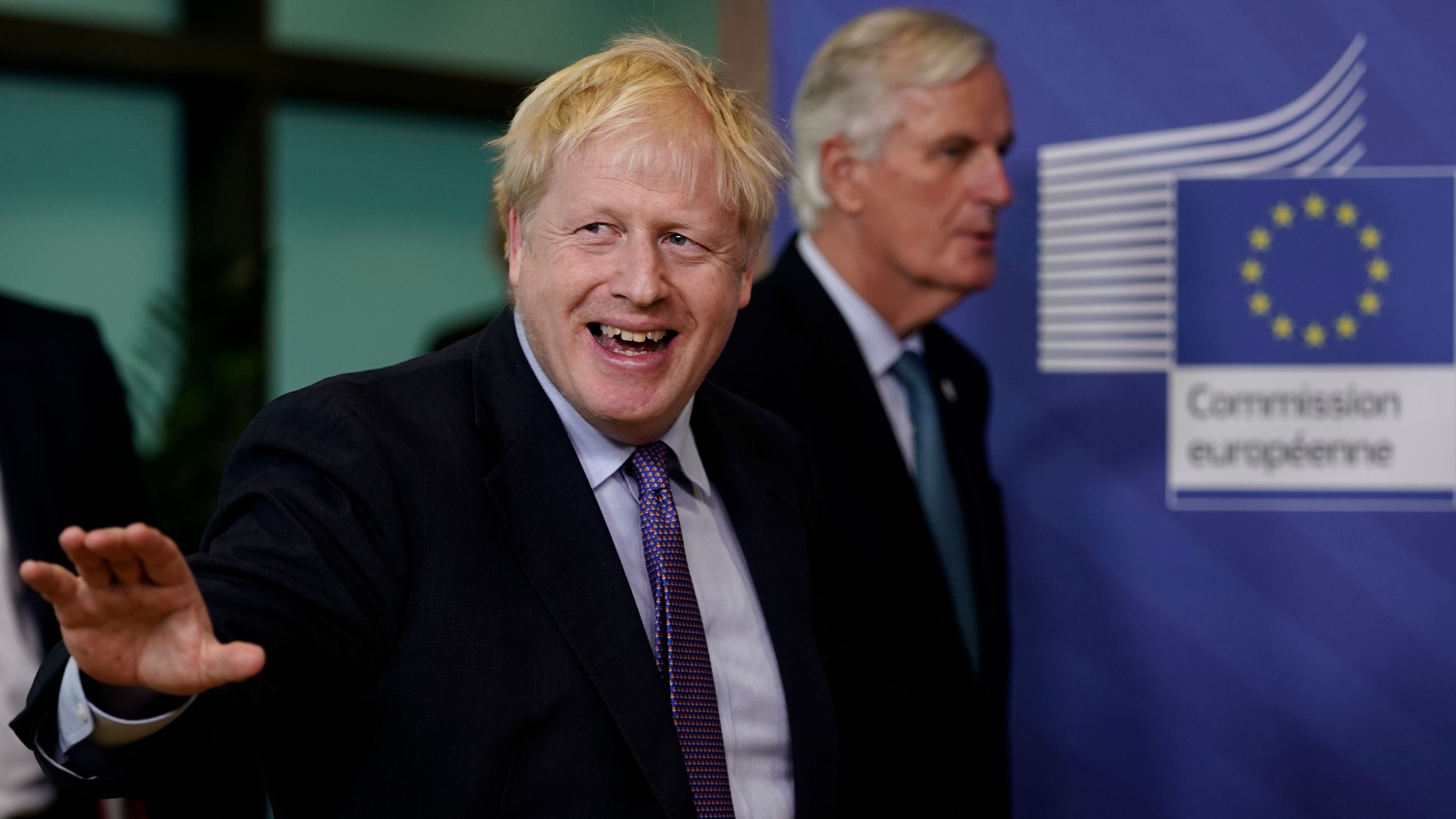
Trade talks between the UK and EU get underway in Brussels today, nearly four years after the UK voted to leave the EU in the 2016 Brexit referendum.
The UK has warned that it is prepared to leave the bloc without a deal rather than accept EU rules and judicial oversight after the transition period ends on 31 December 2020.
Ministers have even threatened to walk out of talks by June if no progress has been made - but are these just empty threats to put pressure on Europe to make concessions?
Unlike the EU, the UK can get what the prime minister and Brexiteers want most - “taking back control” - without securing a deal.
“The UK may be the smaller country, but it can secure its chief negotiating goal of regulatory independence unilaterally by walking out. The EU cannot do the same,” says the Financial Times. “Europe as a whole, the UK included, should prepare for two foreseeable material economic shocks this year: a spread in the coronavirus and a WTO Brexit.”
The EU wants an overarching agreement that would see all disputes referred to a single arbitration panel. The EU’s vision is that the European Court of Justice - hugely unpopular with Brexiteers - would have the final word on aspects touching EU law, says the BBC.
Meanwhile, UK ministers and negotiators argue that the whole point of Brexit was to reclaim national sovereignty and no longer have to accept rules and judgements from the EU.
–––––––––––––––––––––––––––––––For a round-up of the most important stories from around the world - and a concise, refreshing and balanced take on the week’s news agenda - try The Week magazine. Start your trial subscription today –––––––––––––––––––––––––––––––
The UK’s chief negotiator David Frost believes the EU doesn’t “get it” when it comes to Johnson’s claims he will leave the bloc without a deal.
But citing Johnson’s “capitulation” in the autumn, when the prime minister backtracked and accepted a border down the Irish Sea, the EU thinks the UK PM is bluffing and wouldn’t dare leave without a deal.
_______________________________________________________________________
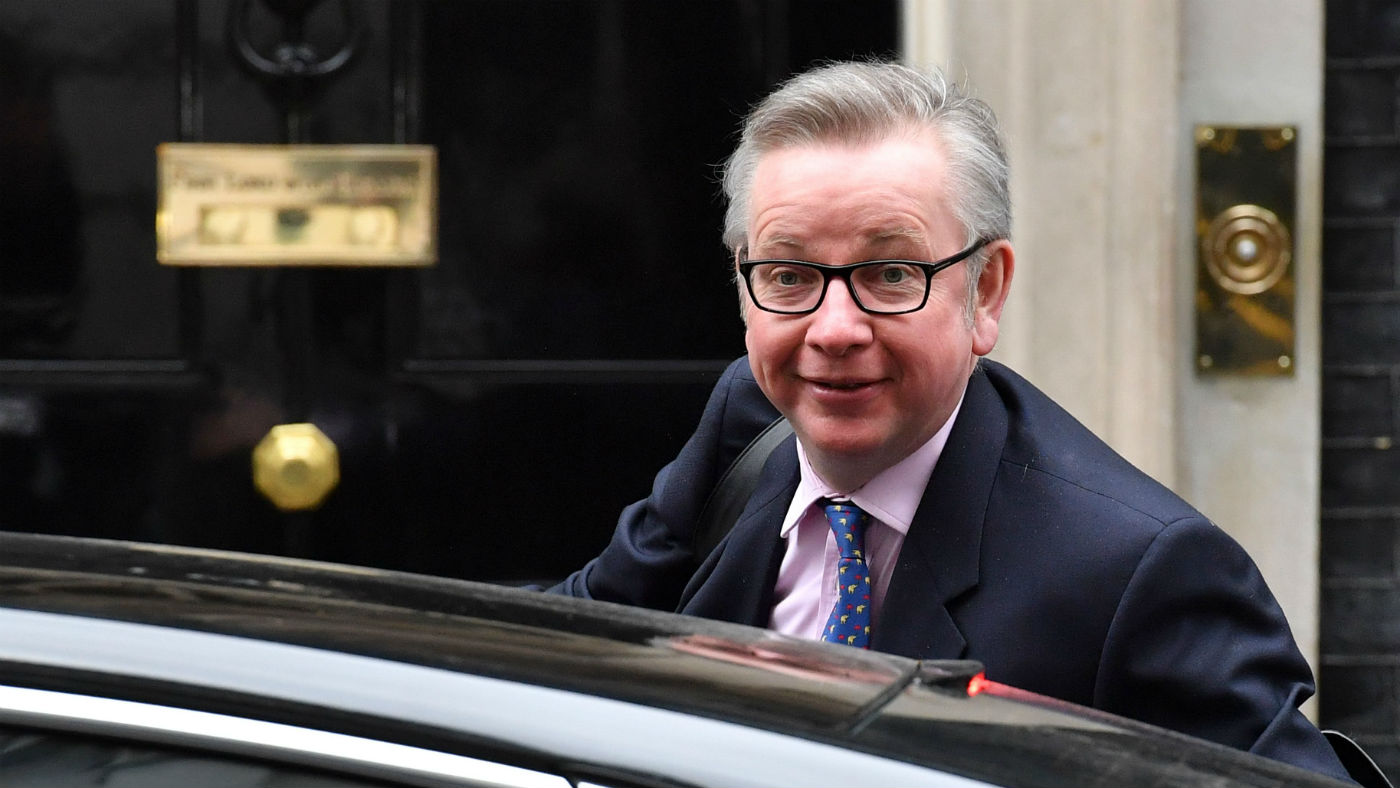
No deal ‘back on the agenda’ with new June deadline
27 February
The UK has warned the EU it will abandon trade talks as early as June if a “broad outline” of a deal has not been agreed.
Cabinet Office minister Michael Gove told Parliament that the UK wanted to strike a “comprehensive free trade agreement” in the ten months before the Brexit transition period comes to an end.
But he reiterated the prime minister’s insistence that the government would not accept alignment with EU laws to get a deal.
“We will not trade away our sovereignty,” Gove told MPs.
The message was clear, says Tamara Cohen at Sky News: “No deal is back on the agenda.”
She adds that the term appears to be banned by No. 10, and is now being billed as a “Canada-style deal” or an “Australian-style arrangement”.
Cohen notes that “this is the sabre-rattling phase, and there may well be common ground between the lines”, but political will is “required in droves” to meet the new June deadline.
Both the UK and EU have set out their priorities for negotiations ahead of the formal start to talks on Monday.
In a 30-page document, the UK government says it “will not negotiate any arrangements in which the UK does not have control of its own laws and political life”.
It reiterates the UK’s desire for a Canada-style arrangement with the EU, and says the UK will rely on World Trade Organization (WTO) terms if progress is not made on a deal with the bloc.
The EU’s 46-page document indicates that the Union expects the UK to remain aligned with changes to EU rules on state subsidies for industry, environmental standards and workers’ rights in future.
Any agreement between the UK and EU “should uphold common high standards, and corresponding high standards over time with Union standards as a reference point”, the document says.
But Boris Johnson told BBC News: “The whole objective of doing what we are doing is so the UK can do things differently and better.
“All we want is mutual recognition of each other’s high standards and access to each other’s markets.
“We wouldn’t ask the EU to follow every particular in UK legislation so it doesn’t make any sense for them to make the same requirement of us and that’s where we are.”
The EU’s chief negotiator Michel Barnier has said the bloc is prepared to give the UK “super-preferential access” to the EU market of 450 million people.
_______________________________________________________________________
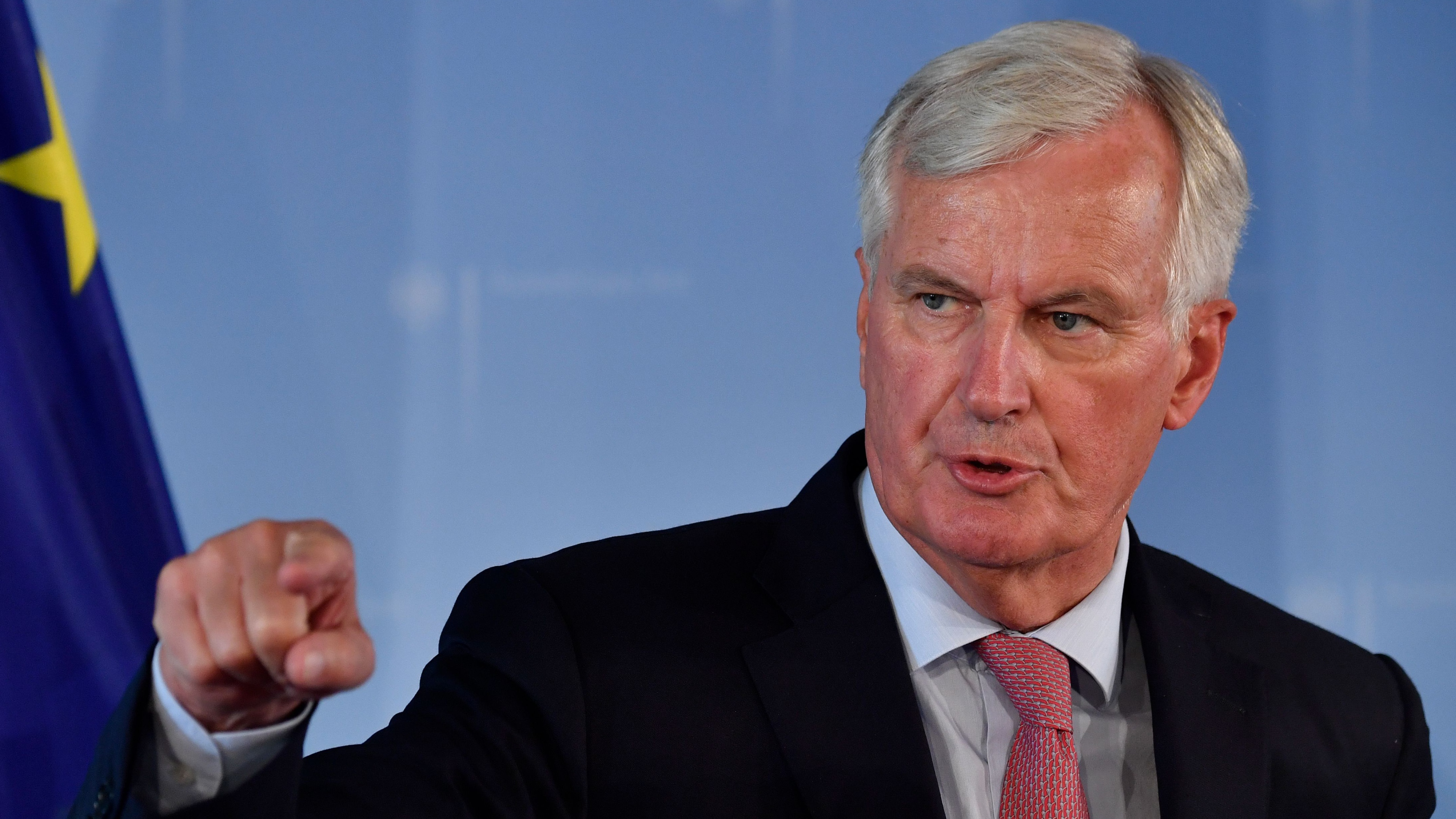
Why the EU trade talks mandate is so important
25 February
Ministers from the European Union have approved their mandate for post-Brexit trade talks with the UK.
The document will be the basis for the negotiations, to be led by Michel Barnier, and says that EU standards should serve as “a reference point” in any future trade deal.
Meanwhile, UK ministers have reached a consensus on the UK's opening stance for the talks, set to begin next Monday.
The Government’s plans are due to be published online and presented in Parliament this Thursday, the BBC reports.
The EU’s final report establishes the bloc’s developing environmental, social and workers’ standards as the baseline for a trade deal, The Guardian notes.
EU laws would not need to be adopted by Westminster as they develop, but Brussels would retain the right to apply tariffs or other sanctions if any future divergence between the two sides causes market competition “disruptions”, the newspaper reports.
The one issue on which the EU is demanding complete alignment over time is state aid rules, insisting that the UK must apply these regulations in their entirely as they evolve.
“This is the blueprint that Michel Barnier will follow in the negotiations,” said BBC Brussels correspondent Adam Fleming. “We've learnt from experience these documents are very important because the EU will only accept a final outcome that is pretty similar to this starting point.”
Or to put it another way, this is “the roadmap for all the rows we're going to have over the next few months”, according to Fleming.
Boris Johnson has been warned that the EU will not be hurried into a deal on the future relationship, The Guardian reports.
The prime minister is expected to push for a Canada-style agreement with zero tariffs, after repeatedly referring to the proposal in recent speeches.
But Barnier has previously said that the UK is too close in proximity to be permitted to compete with the other 27 member states on the same terms as Canada.
_______________________________________________________________________
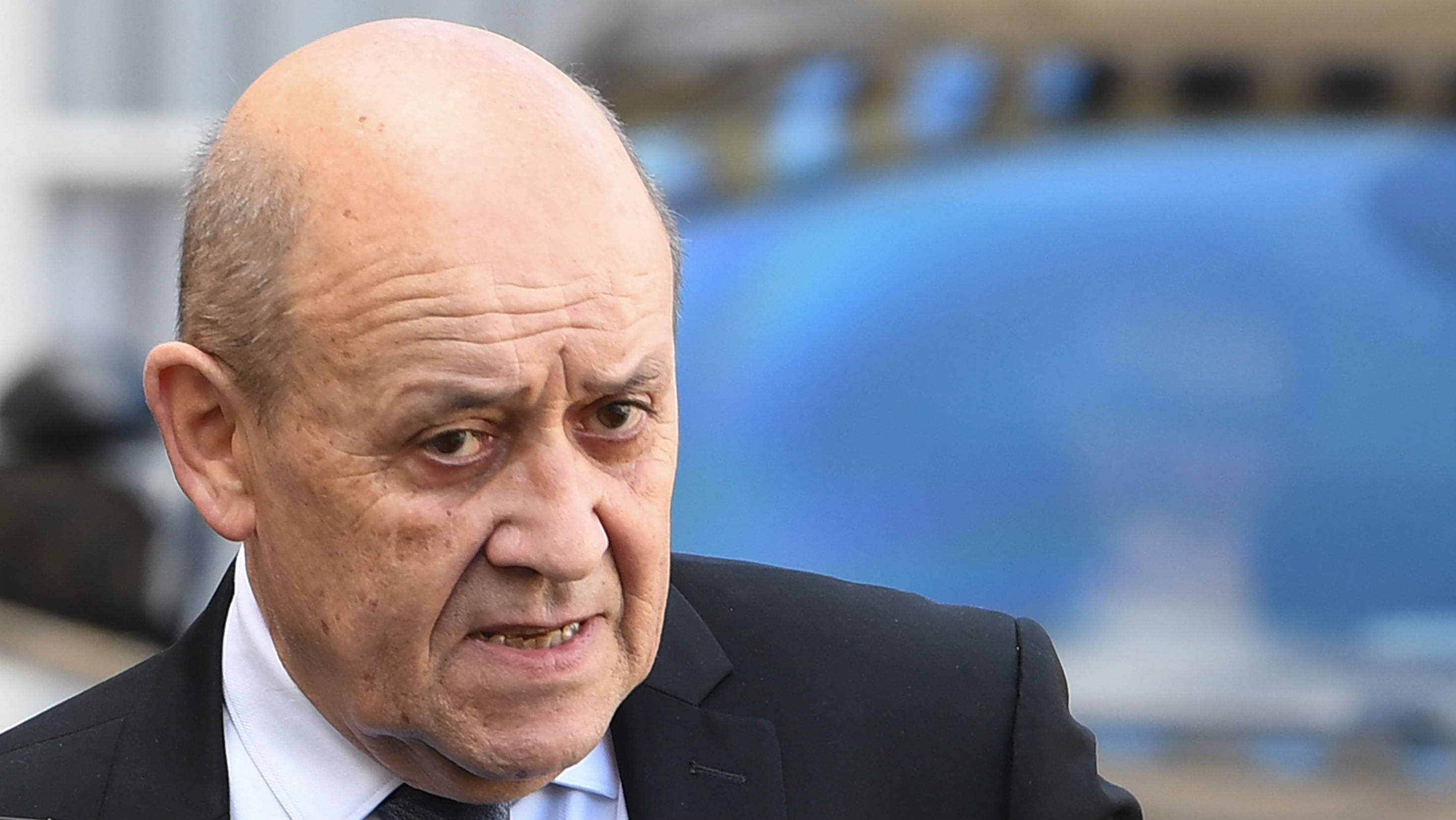
UK and EU will ‘rip each other apart’
17 February
France has warned that the UK and EU will “rip each other apart” in negotiations over post-Brexit trade arrangements.
The French foreign affairs minister Jean-Yves Le Drian said the UK and EU were at odds on a number of issues.
He predicted that it will be tough for the UK to honour Johnson’s pledge to get a trade deal with the EU by the end of the year.
Speaking at a Munich security conference on Sunday, Le Drian said: “I think that on trade issues and the mechanism for future relations, which we are going to start on, we are going to rip each other apart.
“But that is part of negotiations, everyone will defend their own interests.”
The UK government insists it wants a trade deal based on “friendly co-operation between sovereign equals”.
–––––––––––––––––––––––––––––––For a round-up of the most important stories from around the world - and a concise, refreshing and balanced take on the week’s news agenda - try The Week magazine. Start your trial subscription today –––––––––––––––––––––––––––––––
The UK’s chief Brexit negotiator David Frost will today reiterate the prime minister’s ambition to rule out any form of regulatory alignment with the EU from 2021 onwards.
Last week the European Parliament stated its ambition for “dynamic alignment”, with the UK to follow EU rules on a range of issues including food labelling, chemicals regulation and company subsidies.
UK ministers have repeatedly ruled out a formal regulatory relationship.
_______________________________________________________________________
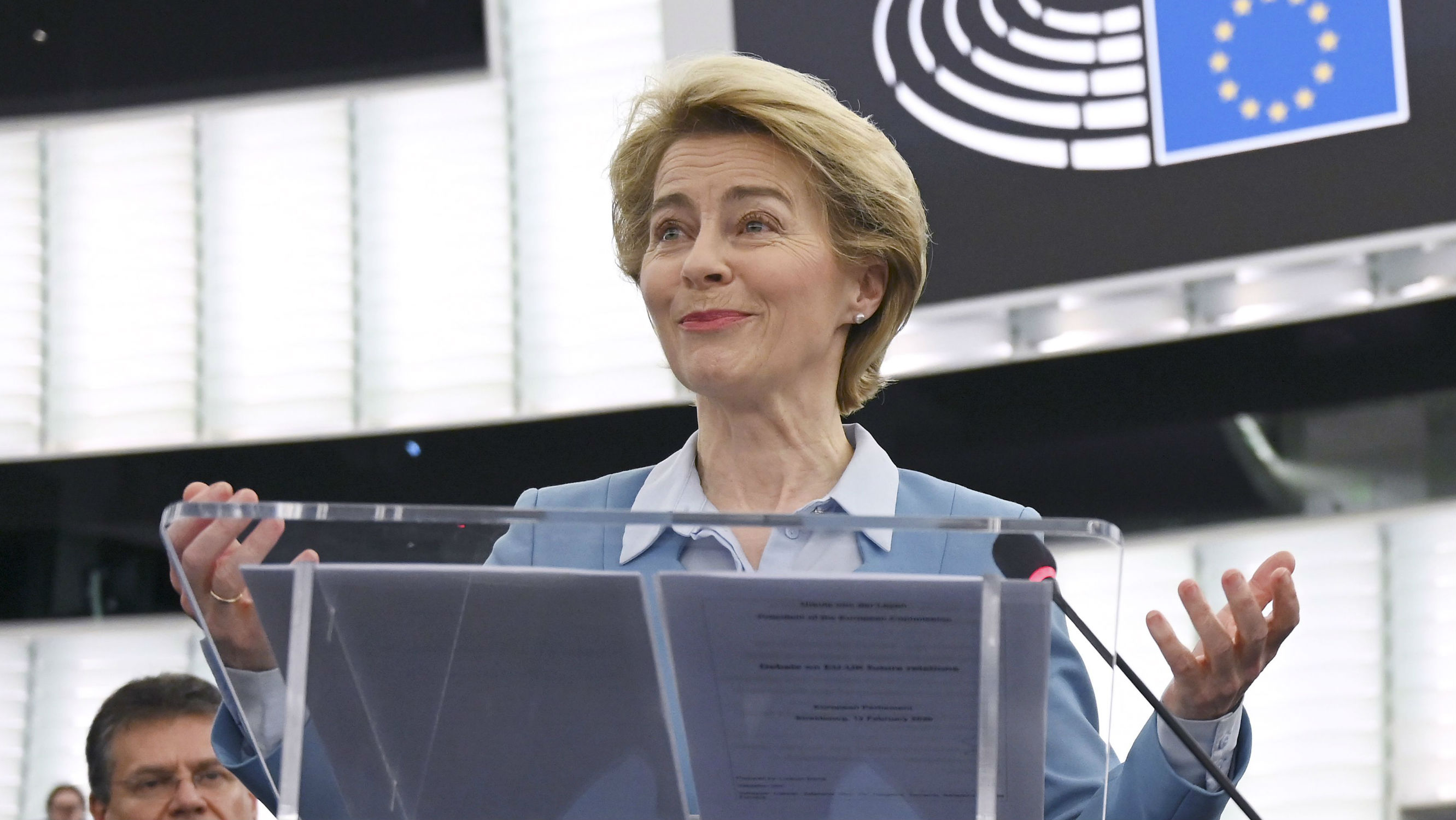
EU Commission chief mocks Boris Johnson over deal plans
11 February
The president of the European Commission has mocked Boris Johnson’s claims he could accept an “Australian-style” trade deal with the EU, by pointing out such a deal does not exist.
Speaking to MEPs, Ursula von der Leyen said: “Honestly, I was a little bit surprised to hear the prime minister of the United Kingdom speak about the Australian model.
“Australia without any doubt is a strong and a like-minded partner. But the European Union does not have a trade agreement with Australia. We are currently trading on WTO [World Trade Organization] terms.”
Challenging Johnson, Von der Leyen added that the EU was seeking a deal with Australia, so the UK trying to emulate their current arrangement would see them worse off.
“If this is the British choice, well, we are fine with that without any question. But, in fact, we just are in the moment where we are agreeing with Australia that we must end this situation and we work in a trade deal with them.
“Of course the United Kingdom can decide to settle for less but I personally believe we should be way more ambitious.”
The EU Commission chief also said that the EU was offering the UK terms that were better than any trade agreement they had ever offered: “When we agreed the political declaration with the United Kingdom we ‘ambitioned’ a zero-tariffs and zero-quota trade relations for all goods. Something we have never ever before offered to anybody else... But of course this will require corresponding guarantees on fair competition and protection of social, environmental and consumer standards.”
_______________________________________________________________________
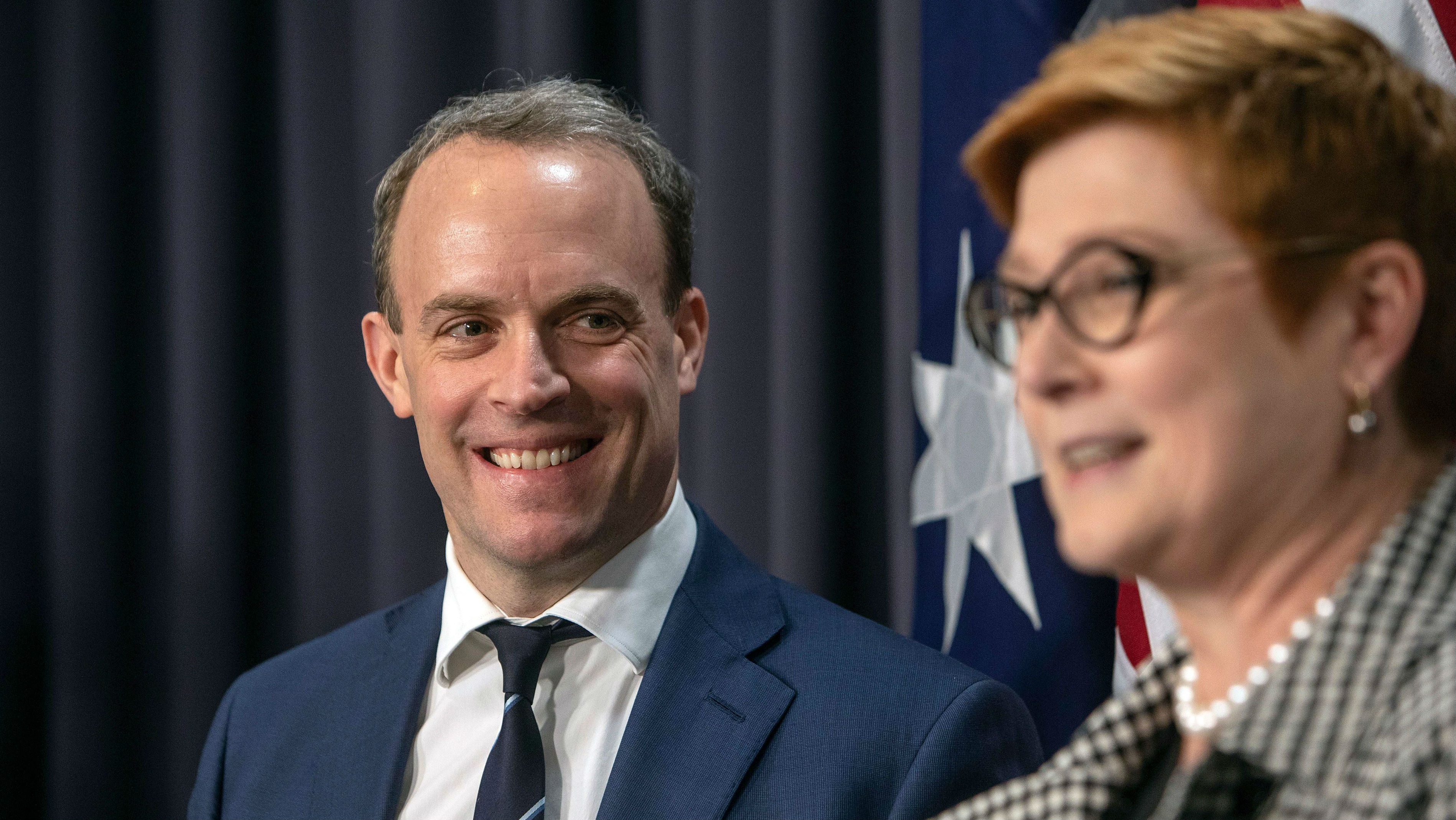
Why Dominic Raab has been sent to Australia
6 February
Foreign Secretary Dominic Raab has arrived in Australia on the first leg of a tour to promote free trade deals with the UK.
Speaking ahead of talks with his Australian counterpart Marise Payne, he said the UK will be a “force for good in the world” and Australia is “a natural partner”.
The government is hoping to seal early deals with Australia, as well as New Zealand, Japan and the US, in the wake of its departure from the EU.
Raab is set to visit Japan, Singapore and Malaysia on his trade tour over the coming few days.
Meanwhile, International Trade Secretary Liz Truss has said that the UK will seek broad reductions in tariffs in a new trade deal with the US.
“We will drive a hard bargain and, as with all negotiations, we will be prepared to walk away if that is in the national interest,” she told the Commons.
Any post-Brexit deal would “increase access to the US market for UK businesses, and lower prices and increase choice for UK consumers”, said Truss.
But the UK will not compromise on food standards, animal welfare or the price that the NHS pays for its drugs in order to get a deal with the US, said the trade secretary.
Speaking before travelling to Australia, Raab said the UK “had a multi-billion-pound trade relationship with investment in both directions, supporting jobs and growth in both economies”.
Trade between the UK and Australia was worth £18.3bn in 2019, making Australia the UK’s 19th-biggest trading partner, says The Telegraph.
But former Australian prime minister Julia Gillard told the BBC’s Politics Live show in October last year that a trade dale between the two countries would not make up for the economic damage brought by Brexit.
_______________________________________________________________________
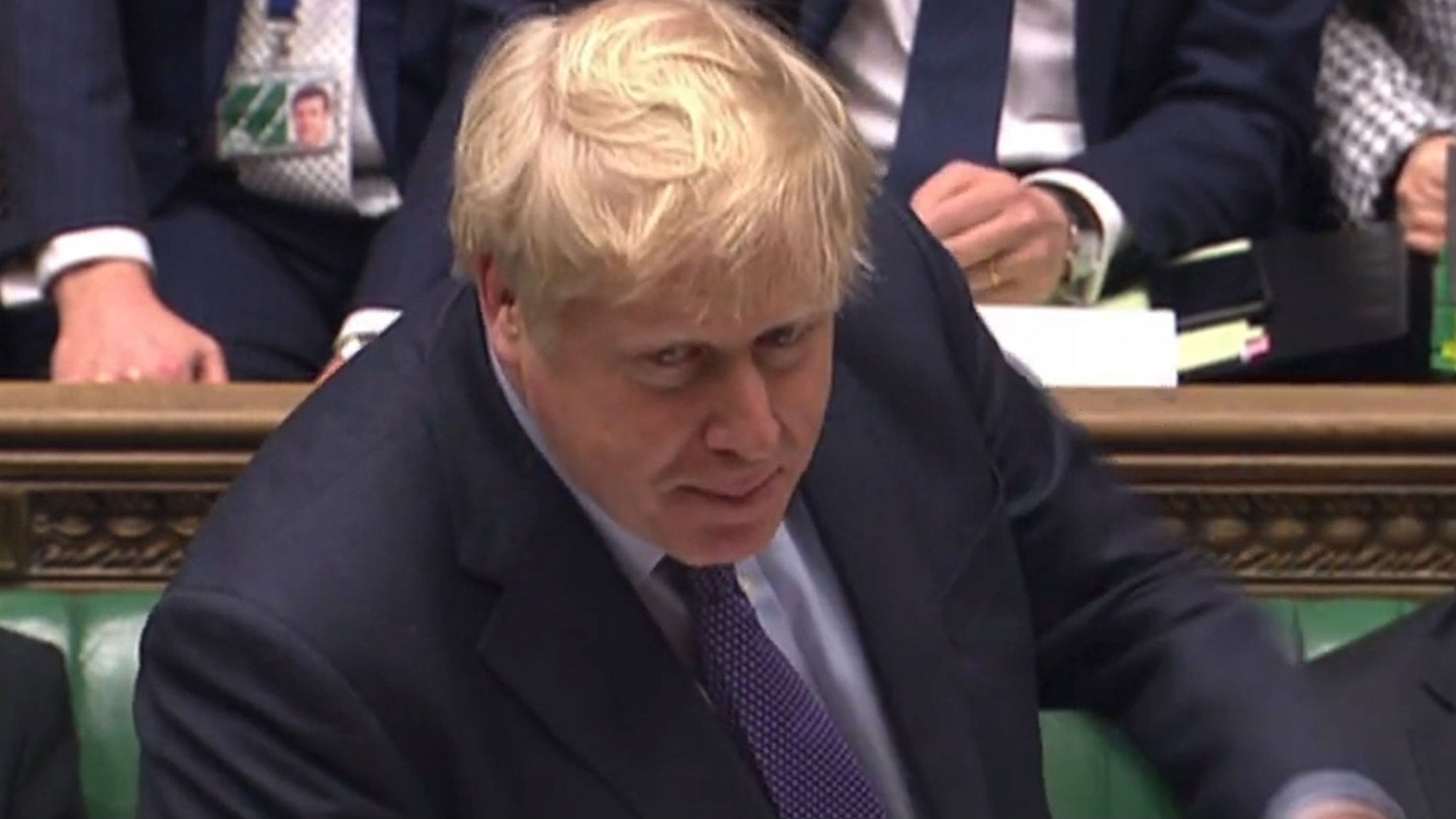
PMQs: Boris Johnson accused of ‘isolationist approach’ on trade
5 February
Boris Johnson was accused of adopting an “isolationist approach” to post-Brexit trade negotiations during the first Prime Minister’s Questions session since the UK left the EU last Friday.
The SNP’s leader in Westminster, Ian Blackford, said: “In the first few days of Brexit Britain, this prime minister has sacked an official, taken an isolationist approach to trade and banned the press from a Downing Street briefing. Is he intentionally trying to impersonate Donald Trump?”
He took aim at Johnson’s plans to prioritise a trade agreement with the US in the wake of Brexit, warning it could damage the health service.
“Our former US ambassador has made clear the threat of a Tory-Trump trade deal, warning that drug prices could soar,” said Blackford. “This could see increased pressure on our frontline services – it is clear than ever that this government, this prime minister is a threat to our NHS.”
Johnson defended his post-Brexit trade ambitions in the Commons this afternoon, hitting back at Blackford: “I don’t think anybody who listened to my speech on Monday could mistake if for anything but the most passionate, internationalist, global, outward-looking approach.
–––––––––––––––––––––––––––––––For a round-up of the most important stories from around the world - and a concise, refreshing and balanced take on the week’s news agenda - try The Week magazine. Start your trial subscription today –––––––––––––––––––––––––––––––
“There is only one party in this country that has ‘nationalist’ in their name. That’s them. They would break up the most successful political partnership of the last 300 years.”
Blackford, of the Scottish National - rather than Nationalist - Party, responded that the PM “does not even know the name of our party”.
_______________________________________________________________________
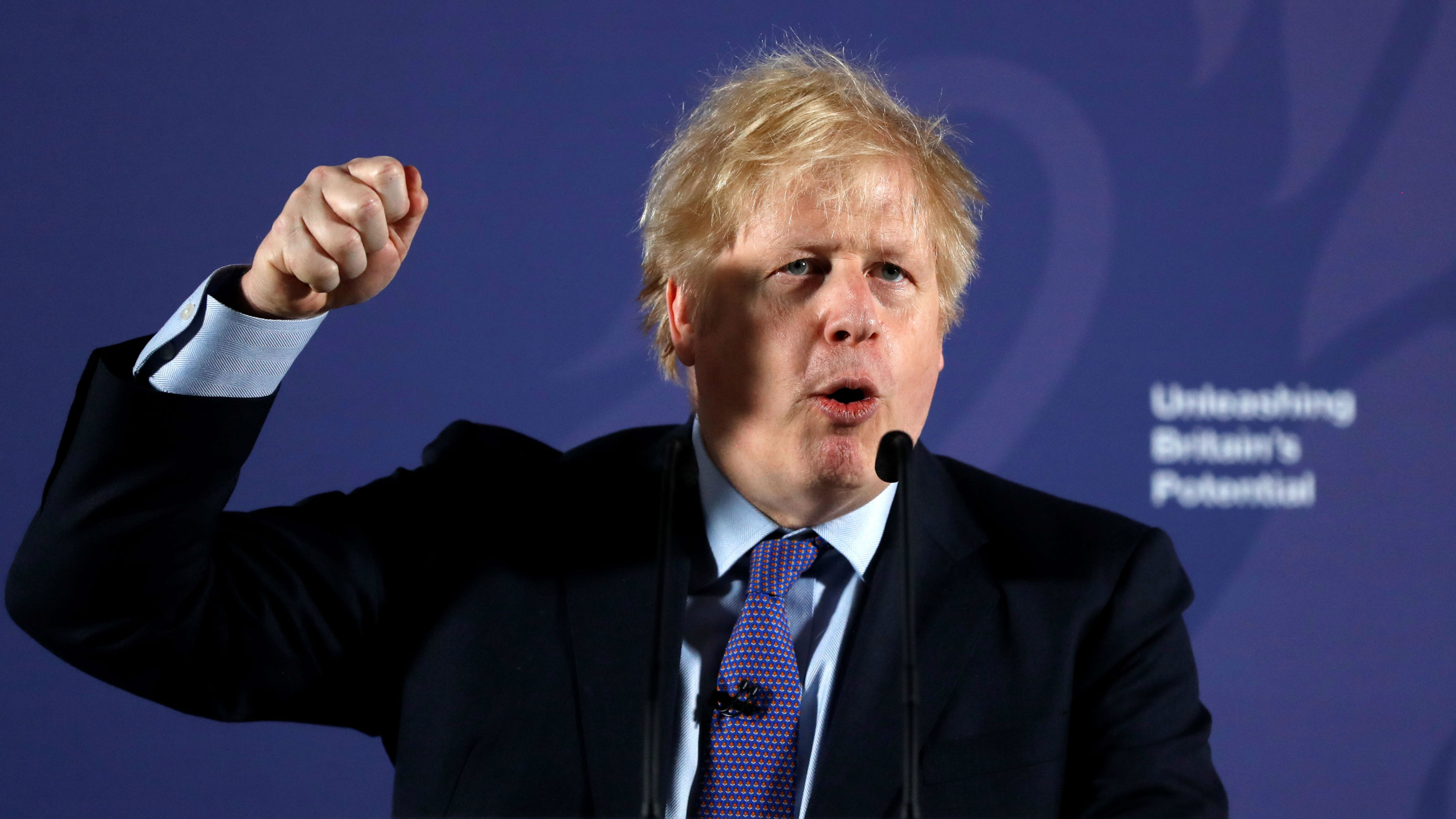
Boris Johnson lauds free trade in first post-Brexit speech
1 February
Boris Johnson has used his first major speech since the UK left the EU to laud the benefits of global free trade.
Taking aim at “protectionists” in the EU, China and US, Johnson said global political leaders should do away with tariffs, and should open up borders to goods.
The UK is “ready to take off its Clark Kent spectacles and leap into the phone booth, and emerge with its cape flowing” ready to trade with the world, said Johnson.
The prime minister made clear his intention to use the UK’s post-Brexit trading arrangements to strike deals with countries around the world.
“We will reach out to the Commonwealth. We will engage with Japan, with old friends and partners Australia, New Zealand, Canada. We will get going with our friends in America... in doing free trade deals we will be governed by science and not by mumbo jumbo.”
And he reassured the EU that he would not engage in a “cut-throat race to the bottom” in regards to working standards, worker rights and environmental regulation.
Describing the EU as “historic friends, partners and neighbours” - Johnson said the UK would go “further and faster” than the bloc on regulations, but it would not refuse a trade deal with the EU if the Union did not match the UK “every step of the way”.
“Will we accuse them of dumping? Or wanting to dump? Of course not. I hope our friends will understand that what is sauce for the goose is sauce for the gander.
“There is no need for a free trade agreement to involve accepting EU rules, anymore than the EU should be obliged to accept UK rules. The UK will maintain the highest standards, better in many respects than those in the EU, without the compulsion of a treaty,” he said.
- Brexit trade talks: what happens next?
- How will Brexit affect UK imports and exports?
- Are post-Brexit Britain’s morals for sale?
The prime minister once again clarified that he desired a Canada-style deal with the EU. “I hope you’ve got the message by now, we’ve made a choice, we want a comprehensive free trade agreement, similar to Canada’s,” he said.
But, he said, if a deal cannot be reached, then the UK would have a trade deal based on the existing withdrawal agreement with the EU - an “Australia-style” deal.
“In either case, the UK will prosper mightily,” said Johnson.
Ursula von der Leyen: ‘Time is short’
12.05pm
Ursula von der Leyen, the European Commission President, and Michel Barnier, the Commission’s head of task force for relations with the UK, have commented on the EU’s stance on negotiations.
Leyen said: “It’s now time to get down to work. Time is short. We will negotiate in a fair and transparent manner, but we will defend EU interests, and the interests of our citizens, right until the end.”
Barnier said: “We will negotiate in good faith. The Commission will continue working very closely with the European Parliament and the Council. Our task will be to defend and advance the interests of our citizens and of our Union, while trying to find solutions that respect the UK's choices.”
Boris takes questions: the word Brexit ‘not banned’
12.25pm
The prime minister has been taking questions following his speech at the Old Royal Naval College in Greenwich on the future of EU trade.
Asked whether the word “Brexit” was banned after omitting it from his speech, Johnson said: “It’s not banned. It’s just over ... it’s gone. I wouldn’t say it’s like the big bang or the Norman Conquest. It’s just that it’s receding into history behind us.”
He also defended the prospect of an Australia-style deal with the EU if the UK could not secure a Canada-style agreement with the bloc.
Asked whether an Australia-style deal was a “euphemism” for no-deal, Johnson said: “We’ve got a deal – it’s a great deal. We’re out.”
-
 Health insurance: Premiums soar as ACA subsidies end
Health insurance: Premiums soar as ACA subsidies endFeature 1.4 million people have dropped coverage
-
 Anthropic: AI triggers the ‘SaaSpocalypse’
Anthropic: AI triggers the ‘SaaSpocalypse’Feature A grim reaper for software services?
-
 NIH director Bhattacharya tapped as acting CDC head
NIH director Bhattacharya tapped as acting CDC headSpeed Read Jay Bhattacharya, a critic of the CDC’s Covid-19 response, will now lead the Centers for Disease Control and Prevention
-
 Local elections 2026: where are they and who is expected to win?
Local elections 2026: where are they and who is expected to win?The Explainer Labour is braced for heavy losses and U-turn on postponing some council elections hasn’t helped the party’s prospects
-
 How corrupt is the UK?
How corrupt is the UK?The Explainer Decline in standards ‘risks becoming a defining feature of our political culture’ as Britain falls to lowest ever score on global index
-
 The high street: Britain’s next political battleground?
The high street: Britain’s next political battleground?In the Spotlight Mass closure of shops and influx of organised crime are fuelling voter anger, and offer an opening for Reform UK
-
 EU-Mercosur mega trade deal: 25 years in the making
EU-Mercosur mega trade deal: 25 years in the makingThe Explainer Despite opposition from France and Ireland among others, the ‘significant’ agreement with the South American bloc is set to finally go ahead
-
 Biggest political break-ups and make-ups of 2025
Biggest political break-ups and make-ups of 2025The Explainer From Trump and Musk to the UK and the EU, Christmas wouldn’t be Christmas without a round-up of the year’s relationship drama
-
 Who is paying for Europe’s €90bn Ukraine loan?
Who is paying for Europe’s €90bn Ukraine loan?Today’s Big Question Kyiv secures crucial funding but the EU ‘blinked’ at the chance to strike a bold blow against Russia
-
 ‘The menu’s other highlights smack of the surreal’
‘The menu’s other highlights smack of the surreal’Instant Opinion Opinion, comment and editorials of the day
-
 Is a Reform-Tory pact becoming more likely?
Is a Reform-Tory pact becoming more likely?Today’s Big Question Nigel Farage’s party is ahead in the polls but still falls well short of a Commons majority, while Conservatives are still losing MPs to Reform